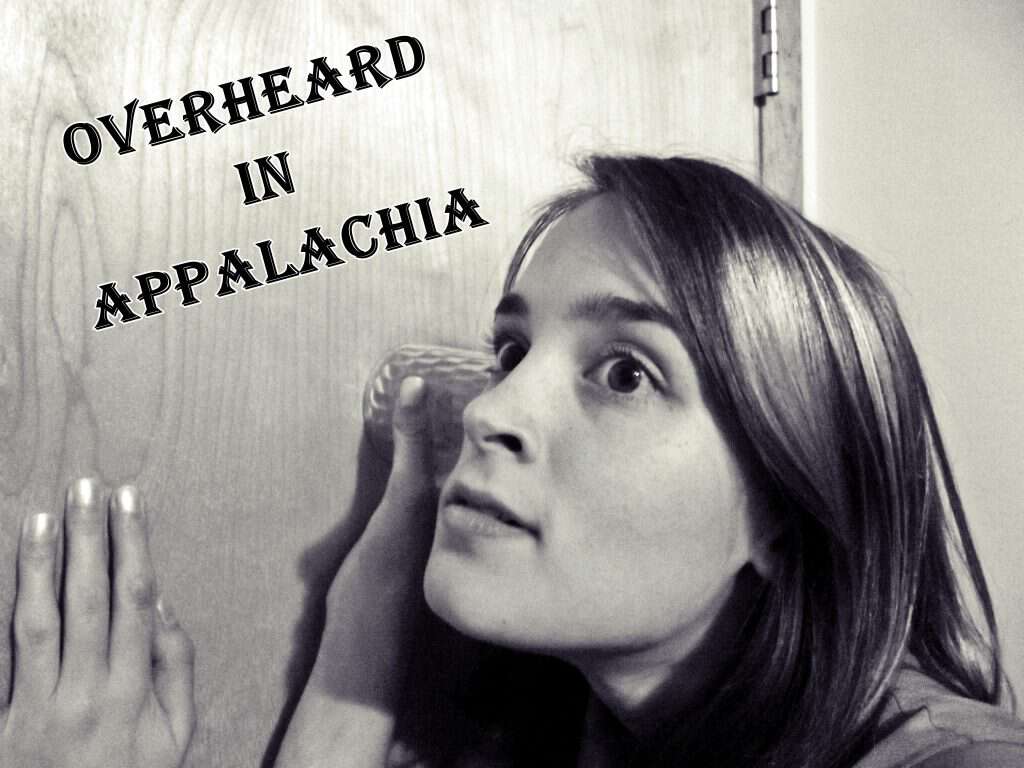
“You better put your shoes on, I heard some thunder back in yonder.”
——————-
Tipper
Overheard: snippets of conversation I overhear in Southern Appalachia

“You better put your shoes on, I heard some thunder back in yonder.”
——————-
Tipper
Overheard: snippets of conversation I overhear in Southern Appalachia

When I hear someone talking about the many murder ballads of Appalachia, Knoxville Girl is always the one that comes…

Granny and Tipper The Louvin Brother’s wrote and performed my favorite song about mothers, “God Bless Her Cause She Is…

The Pressley Girls – Fall 2016 Marble, NC We’ve been learning the Steeldrivers song If it hadn’t been for Love for the…

In southern Appalachia we’re in that weird time period between summer and fall. We’ve had a few teases of fall,…

Female Soldier and Bushwhacker in the Civil War written by Maggie MacLean Union sympathizers Malinda Blalock and her husband…

Ever seen a bottle tree? Usually the bottles are stuck on the branches of the tree. This one near my…
I was told you need rubber soles to bounce the electricity back out. My grandfather was struck and killed by lightening, he was walking home with my mom when she was 7 years old. She was holding his hand, got right in front of her house, grandma opened the door, she let go of his hand and he was struck at that moment.
My grandma had a list of things that drew lightening towards you.
Tamela -back in yonder is an uninhabited or not easily accessible place. Most times we have names to describe places, Usually it is named for someone who lived there or an unusual event that occurred there. “The old Mose Wikle place” or Tar Kiln Branch describe well known places. Back in yonder means we don’t know who owns it or who lives there.
It does most often describe a valley or holler as we notate that fact that by use of the word in. Most Appalachian natives live in a valley or holler. Few live on a mountain. Few natives that is.
“Way back in yonder” means it is even more remote or inaccessible.
Makes about as much sense as…
Kid: “I’m going out Ma/Grandma.”
Ma/Grandma: “Make sure your underwear is clean!”
Yet our paternal Grandmother said that nearly every time.
ROFLOL LOL LOL
God bless.
RB
<><
One of my grandfather’s favorite sayings. (Harrison Mayes, you featured one of his cross signs in a recent post) for something difficult or complicated, “It’s like taking the appendix out of a chigger.”
I can remember MaMa telling us as kids to put our shoes on when it was Lightning, and we were in the house. Ohh , the stories I could tell you I’ve seen and heard the Old LIneman tell about a lightning storms, only by the Grace of God I’m still here.
It’s the “back in” I don’t follow. “Over” yonder I could figure out – need to put shoes on so feet don’t get wet in a coming storm. Is “back in” another way of saying a distance behind you? – perhaps especially in a valley, hollow, or draw?
Everybody gets to hear thunder but not everybody gets to hear it back in yonder. Mountain thunder is an entirely different experience. The hills and hollers can modulate and amplify sounds to produce a result unheard in other environments. Sound can echo and reverberate between mountains to create something quite different from its source. Hollers and valleys can focus sounds to a point where it becomes louder than its source thus natural amphitheaters abound. Echoes hold onto sounds even when the source is gone.
There is mountain music and there is mountain music, one being produced by the inhabitants and the other by the mountains themselves. When they are in unison the angels fear for their positions.
Tipper,
I recon folks use to think that you needed your shoes on to not get struck by lightening. When I was little, me and my brother Harold and Gary, a cousin laid out of school and went squirrel hunting on Piercy Creek. It had been foggy and a perfect day to go to the woods and
while we were there, it came a hail storm and lightening hit a big ole dead tree across from us. Lordy, we ran for what seemed like 2 miles getting outta there. We always walked thru the mountains to get there. …Ken
Reckon there was something that needed done before it rained like getting the hay in or the clothes off the line or the drying peaches in?
This is the 22nd day here with only two very brief showers that didn’t get through the trees. I’d sure like to hear some thunder here and not yonder.
Would bare feet ground one to the earth and make you susceptible to a lightening strike??
When I was little I was always barefoot, did not like wearing shoe.